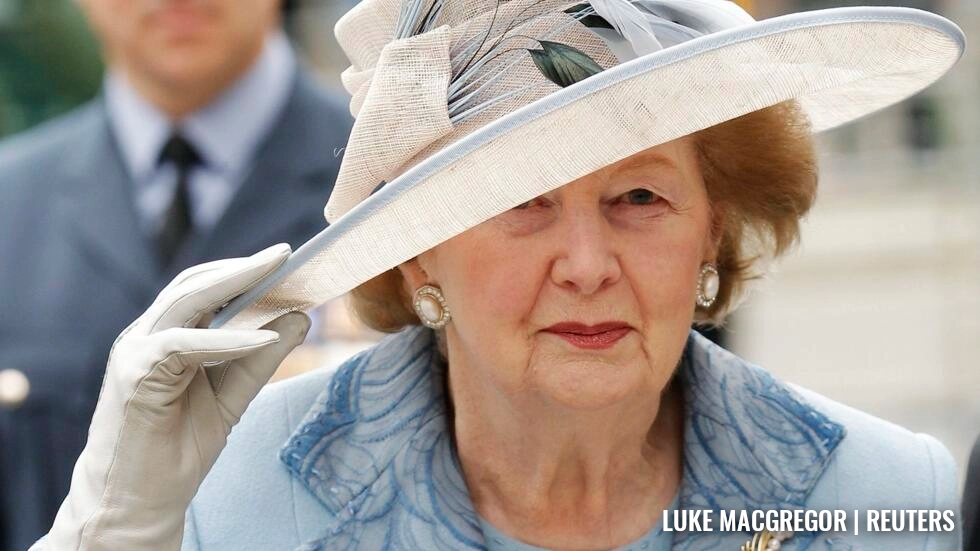One of the most important female politicians of the 20th century. Britain’s first female prime minister, who initiated liberal economic changes and led the country through turbulent times of transition.
The fascinating story of Margaret Thatcher’s life in a 3-volume authorized biography is now available in Polish version, published with the support of the Economic Freedom Foundation.
Life and Politics of Margaret Thatcher
This is what the publisher of the Polish version writes about the authorized biography by Charles Moore:
“A fascinating figure. One of the most important female politicians of the last century. She was the longest-serving British prime minister in the 20th century and the first woman to be elected head of a ruling party in Britain. She earned the nickname ‘Iron Lady’ because of her firmness and consistency. She was a friend of Lech Walesa and Solidarity, whom she supported in the struggle for political change in Poland – this is what the publisher of the Polish version writes about the authorized biography by Charles Moore.”
The biography of “The Iron Lady” was written longer than its heroine spent at the top of politics. The story contained in the books faithfully follows the entire life of Britain’s first female prime minister; from her birth to her victory in the Falklands War, to her third and final victory in the general election and her continued activities for twenty-three years after leaving office in 1990. The complete story of Margaret Thatcher’s life and politics is now available in the bookstores in Poland.
Liberal Economic Reform by Margaret Thatcher
Witold Gadomski (journalist for the Polish nationwide daily newspaper “Gazeta Wyborcza”) and Arkadiusz Muś (founder of Press Glass and the Economic Freedom Foundation) in the afterword of the latest volume of the Polish version of the biography write:
“In the West, Great Britain was the most socialist country. The economy of the country where the Industrial Revolution began 200 years earlier was barely panting under the weight of taxes and state regulation.”
After World War II, mining, energy, metallurgy, the automobile industry, railroads, and public services were nationalized, and private industry was constrained by the increasing control of state institutions. In such a critical situation, the Conservative Party, led by 54-year-old Margaret Thatcher, won the election in May 1979.
Within a few years, Thatcher’s government introduced a series of reforms involving economic liberalization and privatization. Income taxes were cut, and higher indirect taxes compensated for budget shortfalls. The Bank of England dealt with inflation by raising interest rates, and some budget spending was also cut. Unprofitable mines were closed, the omnipotence of labor unions was broken and privatization began in 1983. Thanks to these changes, labor productivity and GDP began to rise for the first time in many years, and unemployment, created after downsizing in state-owned companies, quickly declined.
Today, the name of the “Iron Lady” arouses many emotions; from positive, related to the reforms that have changed the UK economy for the better, to negative, strongly opposing her policies.
Witold Gadomski and Arkadiusz Muś note:
“Similar emotions in Poland are aroused by the figure of Leszek Balcerowicz – an economist who, as deputy prime minister, finance minister, and head of the central bank, made a fundamental contribution to the successful economic transformation, lowering inflation, moving away from socialism in the economy and many other important reforms.”
Who Is the Author of the Biography?
Charles Moore is a British journalist who has been editor-in-chief of such newspapers as The Daily Telegraph, The Sunday Telegraph, and The Spectator. As a commentator for The Daily Telegraph’s political column, he covered the first few years of the government of Margaret Thatcher, who in 1997 personally approached him to become her authorized biographer. This gave Moore access to all the documents of the “Iron Lady”, both private and governmental, and made it possible to conduct about 600 interviews with world leaders, family members, or civil servants so that the biography was written with great accuracy.
To keep the biography independent, Margaret Thatcher herself never read it.



